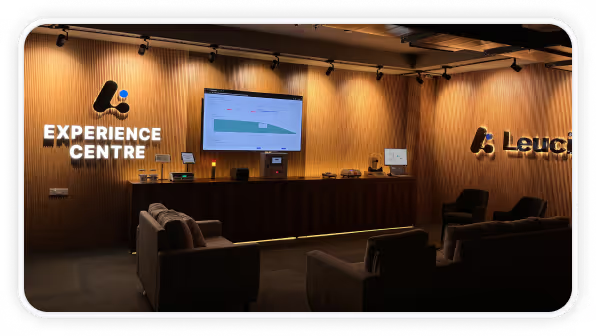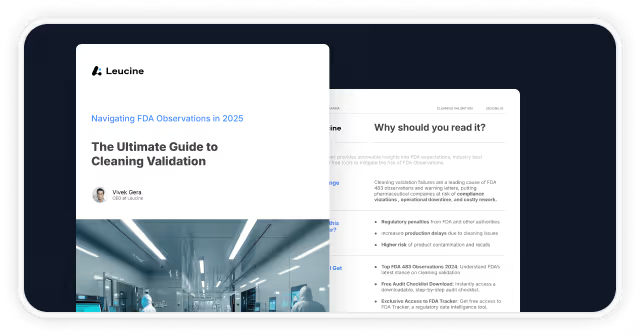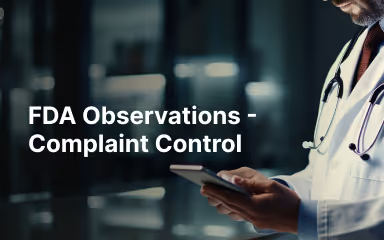Everything You Need to Know in Quality Management System in Pharma

What is a Quality Management System in Pharma?
A quality management system (QMS) is a structured set of policies, processes, and procedures implemented by organizations to ensure that they consistently meet customer requirements and regulatory requirements. In the context of the pharmaceutical industry, a QMS provides the backbone for maintaining the safety, efficacy, and product quality of pharmaceutical products throughout their lifecycle. More broadly, quality management systems are essential across various industries, supporting organizations in achieving regulatory compliance, operational efficiency, and continuous improvement.
QMS frameworks are designed to integrate quality into every stage of production processes—from development to distribution—ensuring that products are manufactured consistently and in compliance with applicable industry standards. A quality management approach guides the implementation of QMS in pharma by providing structured methodologies for achieving organizational excellence and continuous improvement. A QMS includes elements such as document control, quality manual, quality objectives, documented procedures, and quality records, all essential for maintaining regulatory compliance and meeting quality standards.
Why Quality Management System in Pharma?
The life sciences industry operates under intense regulatory compliance pressures. Therefore, the implementation of a quality management system in pharma is not just about service delivery efficiency—it is a compliance imperative. A robust quality management system helps ensure:
- Ensuring compliance with global regulations like FDA, EMA, and WHO-GMP
- Standardization of company processes
- Reduction in errors, quality events, deviations, and rework
- Enhanced patient safety and high quality products
- Transparent documentation and traceability
A well-implemented QMS supports sustainable manufacturing and long-term success by fostering a culture of continuous improvement, risk management, and strategic direction. It also helps organizations achieve their business goals, such as increasing market share, improving customer loyalty, and enhancing overall company performance.
How to Implement Quality Management System in Pharma?
Implementing a quality management system in pharma involves several strategic steps:
- Gap Analysis: Evaluate current organizational processes against compliance requirements and QMS processes to identify areas needing improvement.
- Define Quality Policy and Objectives: Set clear goals aligned with business objectives and customer satisfaction.
- Design the System: Define and document quality processes and the QMS process to ensure integration and compliance, developing standard operating procedures (SOPs), workflows, and QMS documentation.
- Training Management: Educate teams about QMS and their roles in maintain product quality.
- Implement Technology: Use advanced quality management software or QMS software for workflow automation and document management.
- Monitor and Review: Track audit findings, conduct internal and external audits, and refine the management system.
Key Guidelines Shaping QMS in Pharma
ISO 9001:2015
This global standard emphasizes a risk-based, process-oriented approach to quality management, highlighting the importance of risk assessment in ISO 9001:2015. It includes principles such as leadership, managing risk, and a focus on core business processes.
ICH Q10
A comprehensive model that integrates total quality management principles with GMP, quality control, and process improvements, applicable across the product lifecycle.
FDA 21 CFR Part 11
This governs document control for electronic records and signatures, emphasizing the importance of version control for maintaining data integrity and compliance.
Learn more about QMS Guidelines in Pharma 2025
Core Elements of a Quality Management System in Pharma
1. Deviation Management
Captures and addresses deviations in core processes, improving consistent quality and reducing compliance risk.
Explore the full breakdown in our in-depth guide to Deviation Management. Read Now
2. Change Control
Manages change to equipment, methods, or documentation, ensuring all standardized processes are evaluated and approved.
Explore the full breakdown in our in-depth guide to Change Control. Read Now
3. CAPA Management
Implements corrective and preventive actions to eliminate root causes of issues, enhancing quality control processes.
Explore the full breakdown in our in-depth guide to CAPA Management. Read Now
4. Audit Management
Coordinates internal and external audits, monitors quality audits, and ensures achieve compliance.
Explore the full breakdown in our in-depth guide to Audit Management. Read Now
5. Market Complaints Management
Resolves customer complaints through effective complaint management, a key component of the QMS that involves the documentation, investigation, and resolution of customer complaints, as well as supplier management and quality system evaluations.
Explore the full breakdown in our in-depth guide to Market Complaint Management. Read Now
Audit Readiness Checklist for QMS
Preparing for audits is critical in the pharmaceutical industry. A robust QMS supports audit readiness by ensuring complete documentation, process traceability, and compliance with regulatory expectations.
Get our free QMS Audit Readiness Checklist to ensure your system is inspection-ready. Download Now
Stay Ahead with FDA Tracker
Staying compliant starts with staying informed. Leucine’s FDA Tracker delivers weekly insights on FDA warning letters, inspection trends, and compliance actions—so your QMS can evolve with regulatory expectations.
Sign up for free on FDA Tracker and never miss a compliance update.
Expert Insights for Pharma Leaders
For medical device companies and pharmaceutical manufacturers, senior executives must view pharmaceutical QMS systems as a strategic function. A modern quality management solution can ensure:
- Scalable business processes
- Real-time visibility of quality control metrics
- Reliable audit readiness and ensure regulatory compliance
- Effective supplier quality management to enhance supplier collaboration, streamline audit processes, and improve incident management
By aligning quality system strategy with business objectives, pharma leaders drive operational resilience.
Conclusion: The Future of QMS in Pharma
As medical devices and pharmaceuticals converge on quality and tech, the need for a dynamic quality management system qms becomes vital. By embedding quality into every level of the manufacturing process, companies can guarantee excellence in service delivery and achieve leadership in compliance.
Frequently Asked Questions (FAQs)
1. How to create a quality management system?
To create a QMS, define your company’s quality goals and core processes. Document them through SOPs and a quality manual, establish controls for supplier management, audits, and training, and implement document and risk management systems. The result is a robust system that ensures product quality and regulatory compliance.
2. How to choose a quality management system?
Selecting the right QMS involves assessing solutions for scalability, compliance with FDA and ISO standards, and support for critical functions like document control, CAPA, training, audits, and reporting. The best QMS platforms also offer workflow automation, cloud deployment, and real-time dashboards to ensure enterprise-wide visibility.
3. How to measure effectiveness of quality management system?
Effectiveness is measured using KPIs such as deviation frequency, CAPA cycle time, audit scores, customer complaints, and supplier quality metrics. An effective QMS shows improvement in these areas, enables proactive risk management, and ensures alignment with business and regulatory goals.
4. What is the purpose of a quality management system?
The purpose of a QMS is to embed quality into all company processes, ensure compliance with industry regulations, manage risk, and support the consistent delivery of safe, effective, and high-quality products that meet both customer expectations and legal standards.






























.png)
